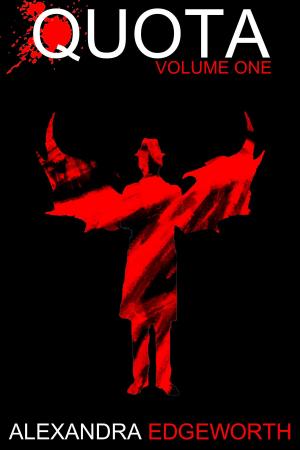| Author: | Ian Cantwell | ISBN: | 9781301693757 |
| Publisher: | Ian Cantwell | Publication: | January 19, 2013 |
| Imprint: | Smashwords Edition | Language: | English |
| Author: | Ian Cantwell |
| ISBN: | 9781301693757 |
| Publisher: | Ian Cantwell |
| Publication: | January 19, 2013 |
| Imprint: | Smashwords Edition |
| Language: | English |
The excellent original introduction to the collection of 800 pieces of Irish wit, which portray life in Ireland and Great Britain, in all its vibrant rough and ready splendour (c. 1760-1810), was written by order of the Lord Chief Joker, Momus Broadgrin, Controller of the Comicals, from his Council Chamber, No. 111, Cheapside, London, in 1811.
“Whereas it has been credibly represented to us, and we have, moreover, strong reasons to believe, that during the rancour, spleen, party dullness, and mutual distrust, which for some time prevailed in this once good-humoured and convivial realm, very considerable quantities of current and sterling wit and pleasantry of the land had been withdrawn from circulation; and that humorous anecdotes, bon mots, good jokes, epigrams, bulls, and divers other devlish things, to the amount of some millions, were concealed or hoarded in memories, brain-boxes, pocket-diaries, common-place-books, and other repositories of once chearful, but since dull, splenetic and gloomy persons, who have passed over to this realm, and have for some time withdrawn themselves from social intercourse, and do now obstinately withhold from conversation the said wit, humour and pleasantry, both in coin and bullion, to the great injury and detriment of colloquial pleasure and national humour, and in the propagation of dullness, the spleen and the blue devils.
Now in order that such invaluable treasures of wit, pleasantry and good-humour, may no longer remain locked up in the said brain-boxes, memories, pocket-books, and other repositories of such glumpish, churlish, and refractory persons aforesaid, and thereby run the risk of being lost to all cheerful society, or of dying with their avaricious and monopolizing possessors. We do hereby charge, command, invite, and implore all wits, humourists, social fellows, droll dogs, comical fellows, fun-lovers, curiosos, odd fishes, pickled dogs, queer devils, and all other votaries of wit, humour and pleasantry, as they tender the common interests of laughter and chearfulness, that they do, with all possible expedition, after this issue of this our proclamation, bring forward or transmit, to the Editor of this our Book, all such bon-mots, pleasant anecdotes, epigrams, characters, witticisms, and all other such good things as they have been so hoarded and concealed, whether they be in coin or rough bullion, as aforesaid, to the end that the same may be forthwith stampt with our imprimature into general circulation, for the advantage of public pleasantry, and the promotion of social harmony and good-humour within our dominions.”
The book is an essential guide to the culture and manners, pomp and politics, humbug and sharp tongues, class and craft, language and expression, wisdom and foolishness during the political ferment prior and during the 1798 Rebellion and the economic and political decline after the 1800 Act of Union.
The excellent original introduction to the collection of 800 pieces of Irish wit, which portray life in Ireland and Great Britain, in all its vibrant rough and ready splendour (c. 1760-1810), was written by order of the Lord Chief Joker, Momus Broadgrin, Controller of the Comicals, from his Council Chamber, No. 111, Cheapside, London, in 1811.
“Whereas it has been credibly represented to us, and we have, moreover, strong reasons to believe, that during the rancour, spleen, party dullness, and mutual distrust, which for some time prevailed in this once good-humoured and convivial realm, very considerable quantities of current and sterling wit and pleasantry of the land had been withdrawn from circulation; and that humorous anecdotes, bon mots, good jokes, epigrams, bulls, and divers other devlish things, to the amount of some millions, were concealed or hoarded in memories, brain-boxes, pocket-diaries, common-place-books, and other repositories of once chearful, but since dull, splenetic and gloomy persons, who have passed over to this realm, and have for some time withdrawn themselves from social intercourse, and do now obstinately withhold from conversation the said wit, humour and pleasantry, both in coin and bullion, to the great injury and detriment of colloquial pleasure and national humour, and in the propagation of dullness, the spleen and the blue devils.
Now in order that such invaluable treasures of wit, pleasantry and good-humour, may no longer remain locked up in the said brain-boxes, memories, pocket-books, and other repositories of such glumpish, churlish, and refractory persons aforesaid, and thereby run the risk of being lost to all cheerful society, or of dying with their avaricious and monopolizing possessors. We do hereby charge, command, invite, and implore all wits, humourists, social fellows, droll dogs, comical fellows, fun-lovers, curiosos, odd fishes, pickled dogs, queer devils, and all other votaries of wit, humour and pleasantry, as they tender the common interests of laughter and chearfulness, that they do, with all possible expedition, after this issue of this our proclamation, bring forward or transmit, to the Editor of this our Book, all such bon-mots, pleasant anecdotes, epigrams, characters, witticisms, and all other such good things as they have been so hoarded and concealed, whether they be in coin or rough bullion, as aforesaid, to the end that the same may be forthwith stampt with our imprimature into general circulation, for the advantage of public pleasantry, and the promotion of social harmony and good-humour within our dominions.”
The book is an essential guide to the culture and manners, pomp and politics, humbug and sharp tongues, class and craft, language and expression, wisdom and foolishness during the political ferment prior and during the 1798 Rebellion and the economic and political decline after the 1800 Act of Union.















